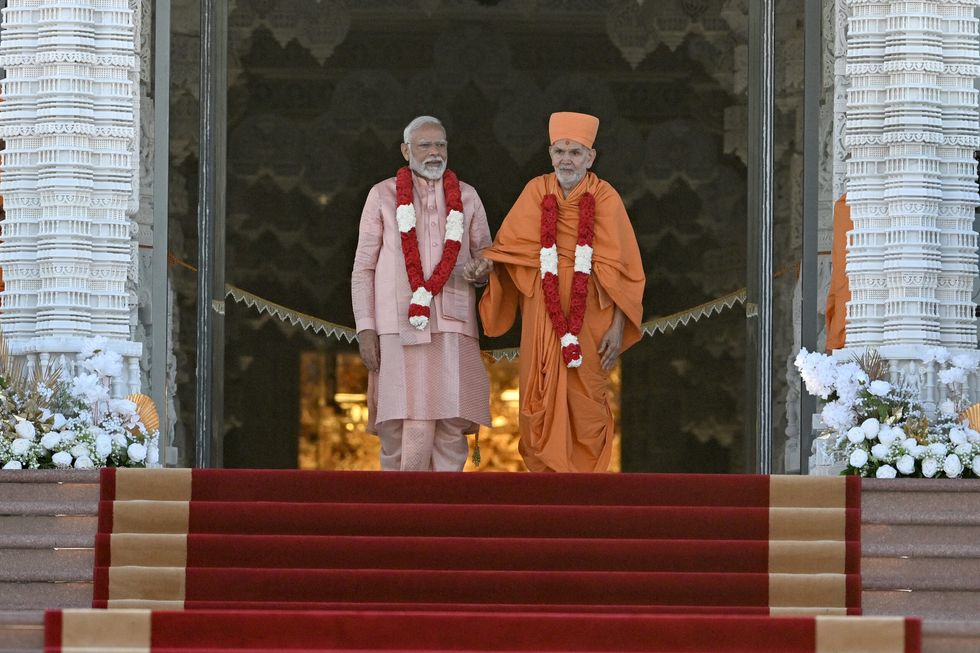The temple, which is the first stone Hindu temple in Abu Dhabi, saw maximum footfall, especially on the weekends, in just a month of inauguration. The temple, built with a similar architecture to India's Ram Mandir, was inaugurated by India's Modi in February and was opened to the public on March 1.
“In the first month, there were approximately 350,000 devotees and visitors, 50,000 of whom visited each weekend (Saturday--Sunday). It's important to note that on Mondays, the mandir conducts private prayers and is closed to visitors, meaning the complex was accessible for only 27 out of the 31 days in March,” a temple spokesperson said.
The temple is built by BAPS Swaminarayan Sanstha on a 27-acre site in Abu Mureikhah, near Al Rahba, off the Dubai-Abu Dhabi Sheikh Zayed Highway for 700 crore (£6,62,88,943). The interesting part is that it was constructed with 18 lakh bricks and 1.8 lakh cubic metres of sandstone sourced directly from a state in India, Rajasthan. This temple has been built in the Nagara style of architecture, similar to Ayodhya's Ram Mandir, making it the largest BAPS temple in all of the Gulf region.
“Every evening from Tuesday to Sunday, Ganga aarti is performed at 7.30 pm on the banks of the Swaminarayan ghat, which has been created using holy water from Ganga and Yamuna transported from India. Since the temple is on the outskirts and in the middle of a desert, public bus service from the city has been started for weekends to allow visitors to easily come to the temple," the spokesperson said.

During Modi's 2015 visit to the UAE, the nation allocated land for a Hindu temple in Abu Dhabi. This marked a significant diplomatic event, as Modi was the first Indian Prime Minister to visit in 34 years. Construction began in 2019, with the UAE donating the land. The temple's architecture incorporates seven spires representing the UAE's emirates, along with carvings of camels and falcons to symbolise the host country.
The Abu Dhabi Hindu temple boasts architectural features that reflect both Indian and Emirati influences. Alongside revered animals from Indian mythology like elephants, camels, and lions, the temple incorporates the UAE's national bird, the falcon, to honour the host country. Depictions of stories from various global civilisations, including Indian epics like the Ramayana and Mahabharata, adorn its walls.
Constructed with materials sourced from India, the outer walls feature sandstone, while the interior boasts white Italian marble intricately carved with columns and walls. Notable elements include two domes named the "Dome of Peace" and "Dome of Harmony," along with 402 pillars and other dome-like structures.
Utilising ancient architectural techniques alongside modern innovations, the temple incorporates over 300 sensors for temperature and seismic monitoring, fly ash in the foundation to reduce carbon footprints, and nano heat-resistant tiles. Skilled artisans from Rajasthan and Gujarat crafted the temple's exquisite marble carvings, with more than 25,000 stone pieces assembled against a backdrop of sandstone.




